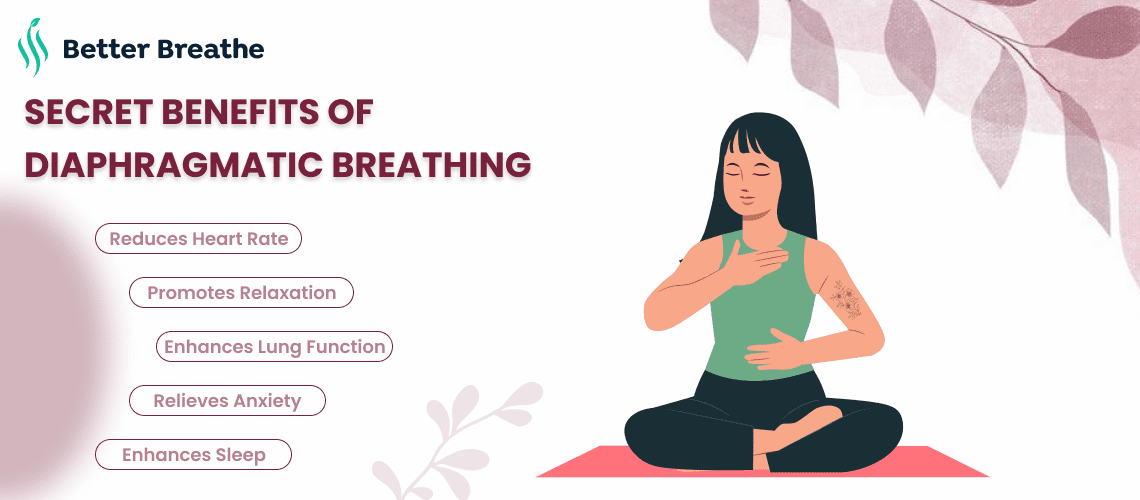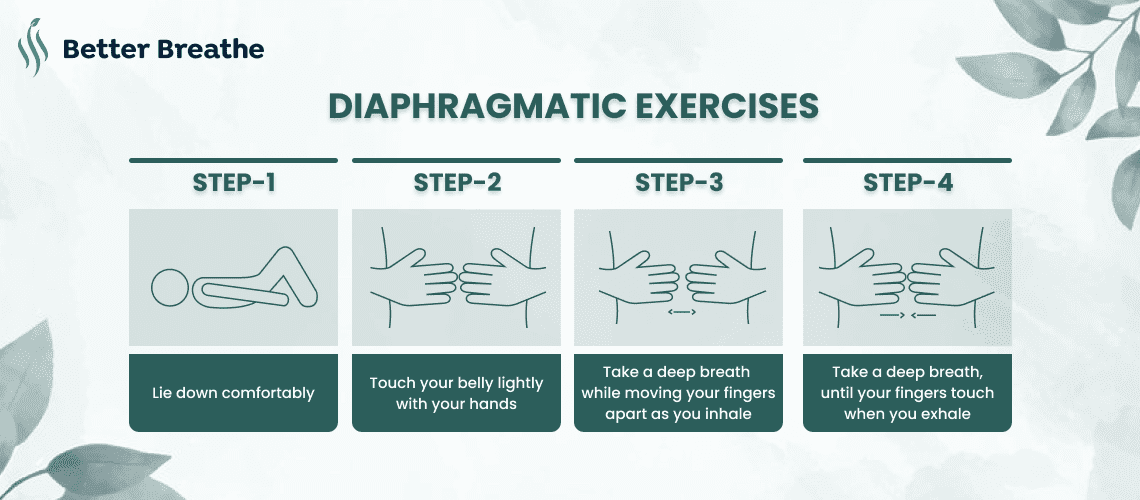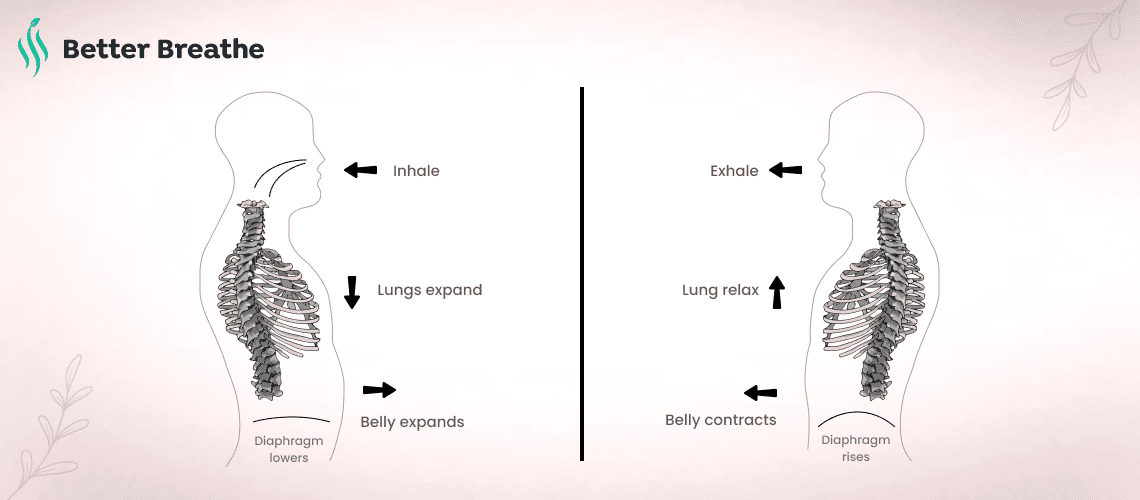
In order to practice Diaphragmatic Breathing, you need to concentrate on your diaphragm, a muscle in your abdomen that allows you to focus on the breathing process. It's also known as abdominal breathing or belly breathing. You may improve your overall breathing by "training" your diaphragm to open up your lungs. As you can imagine, diaphragmatic breathing has several benefits that can affect your entire body in a positive way. It serves as the basis for many meditation methods, including Relaxation Techniques. These techniques can help you lower your stress levels, lower your blood pressure, as well as regulate other crucial aspects of your body.
Let's take a closer look at how diaphragmatic breathing can help you, how to begin, and what the research indicates.
Some exercises take center stage in the fitness world, while others quietly work behind the scenes. Diaphragmatic exercises fall into the latter category and are often overshadowed by more glamorous exercises. Although they are often lauded for enhancing breathing and core strength, many other benefits go unrecognized. We will explore some little-known advantages of diaphragmatic exercises that no expert will tell you about.

NOTE In the case of lung conditions, you should consult your doctor before you try breathing exercises.
Let’s begin with basic steps. The most comfortable position to practice this exercise is lying flat on the bed or you can lie on the floor.
Sit in a lotus position or you can lie down on a comfortable flat surface.
Shoulders should be relaxed and shifted away from the ears.
Keep one hand on your chest and the other on your stomach.
Do not strain or push yourself when breathing through your nose until you can't take any more air.
Inhale Air through your Nostrils into your abdomen. It will expand your stomach and the sides of your waist. Relatively your chest remains still.
Feel your stomach contract when you exhale through your lips for 4 seconds. Purse your lips like you're drinking from a straw. Feel your stomach contract when you exhale through your lips for 4 seconds.
As per research, Diaphragmatic breathing has numerous advantages. It may be useful for you:
When you are under stress, your immune system is working at full capacity. As a result, you may be at risk of developing a variety of diseases. By doing diaphragm Breathing Exercises, you reduce the stress level in your body.
When you have COPD, your lungs lose some of their elasticity and stretchiness, which means that air cannot move in and out of them as easily as it used to. Furthermore, it reduces the effectiveness of your diaphragm as well. For people who suffer from COPD, it is often recommended that they practice diaphragmatic breathing.
In asthma, your lungs can lose elasticity over time and they don't stretch back to their original state when you Exhale. Diaphragm breathing exercises can improve.

It is a dome-shaped respiratory muscle that is located near the bottom of your rib cage directly below your chest.
Each time you breathe in and out, the diaphragm, as well as other respiratory muscles around your lungs, contract (or squeeze). During inhalation, the diaphragm does the majority of the work. It is during inhalation that your diaphragm contracts to allow your lungs to expand into the extra space. This will enable your lungs to take in the amount of air they need to survive.
The intercostal muscle is the muscle between your ribs, which helps raise your ribcage so your diaphragm lets enough air into your lungs.
When it feels difficult to breathe, you have muscles near your collarbone and neck that help you breathe. There are a number of factors that contribute to how quickly and how much your ribs can move, which then allows your lungs to expand.
Diaphragmatic breathing alone is not always beneficial. It cannot be used in place of other medical treatments or therapies.
In fact, some older research on ANS-related diseases such as Irritable Bowel Syndrome (IBS) has revealed that Deep Breathing may be most useful when paired with other treatments such as cognitive behavioral therapy or hypnosis.
Focused breathing exercises may temporarily exacerbate feelings of anxiety in certain people suffering from generalized anxiety disorder or other Mental Health issues. If this happens to you, consider trying alternate Anxiety-Relieving approaches instead.
Before beginning breathing exercises, consult your doctor or a respiratory therapist if you have a lung ailment such as asthma or COPD. They can advise you on which exercises are risk-free for You to Try.
If you have COPD, asthma, or another lung Problem and want to use this exercise to enhance your breathing, consult a doctor or respiratory therapist.
Diaphragmatic breathing may help alleviate some symptoms of anxiety, lung disease, and stress-related disorders such as IBS. You can use our app Better Breathe. Still, it's always a wise idea to consult with a medical practitioner to determine if it's worth your time or if there will be any consequences. Download Better Breath today from the Play Store and App Store to tap into the full potential of diaphragmatic breathing and elevate your well-being.